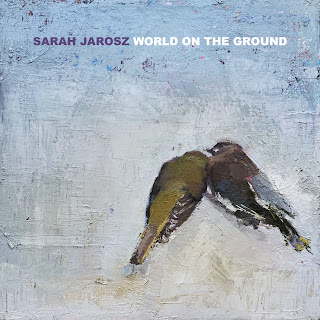
This entry in the Bootleg Series is number 9; I don't know why it took Columbia 19 years and that many volumes to release 47 tracks from Dylan's gestational period as an artist while they saw fit to release a rarities collection spanning 1998-2006 two years ago. Apparently only 15 of the 47 tracks haven't shown up in other versions either on official releases or earlier bootlegs, but as I haven't heard any of the other entries in the bootleg series (barring the relatively recent live albums), this isn't an issue for me.
It seems Dylan started churning out original material at a rapid rate following his covers heavy debut in early 1962; although some of the non-LP tracks borrow melodies from traditional sources, only "Baby Let Me Follow You Down" is a cover. Not only is more than half of 1963's The Freewheelin' Bob Dylan here in demo form, but also four from 1964's The Times They Are a-Changin' (including the title track) and even a piano version of "Mr. Tambourine Man", which eventually showed up on the acoustic half of 1965's Bringing It All Back Home. These demos are lyrically and compositionally identical to their well known counterparts; the main differences, besides fidelity, are in the nuances of Dylan's performances. Befitting a protest song, Dylan's staccato strumming on "Blowin' in the Wind" is more pronounced on the Freewheelin' version than the version presented here.
The non-LP tracks find Dylan at various stages of his transition from folk juke box to protest singer with an original voice and showcase an array of influences, such as Mississippi John Hurt in the fingerpicking on "Seven Curses" and Big Bill Broonzy or any number of post Robert Johnson, pre T-Bone Walker delta blues artists on "Ballad for a Friend". "Talkin' Bear Mountain Picnic Massacre Blues" and "Talkin' John Birch Paranoid Blues" are early versions of what would become "I Shall Be Free #10". "I Shall Be Free" (included here) is an early version of "Bob Dylan's Blues", which doesn't share I Shall Be Free #10/Bear Mountain/John Birch's chord progression, but features similar off-the-cuff lyrics. This explains the title and number of the Another Side track, and the #10 doesn't seem quite as hyperbolic anymore - perhaps Dylan really did write five other variations. "John Birch" is as good a satire as Dylan ever wrote. It sees him joining the then new John Birch society and conducting an increasingly narrowing search for communists within his own house.
The Whitmark Demos comes with a long booklet of photographs preceded by an essay, and if you're lucky, as I was, you'll also get a short live disc, which unfortunately contains nothing exclusive. Even without these bells and whistles, it's valuable both as a historical document and a listening experience.




No comments:
Post a Comment